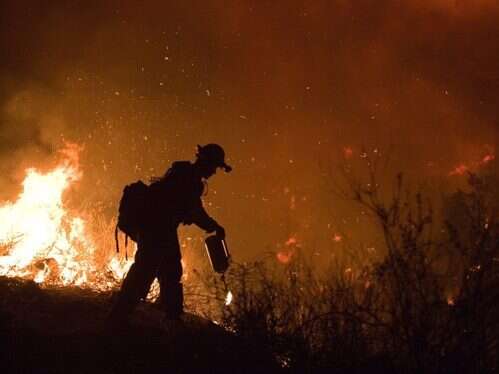The “fire-prone conditions” behind the devastating wildfires in Quebec earlier this year, and the stifling smoke they spread across much of North America, were made at least two to seven times more likely by climate change, concludes an analysis published Tuesday by the World Weather Attribution (WWA) initiative.
An international team of 16 climate scientists “also found that climate change, caused primarily by burning fossil fuels, made the fire-prone weather about 20 to 50% more intense,” the UK-based WWA said in a release.
The news landed just as a separate briefing by Oil Change International concluded that 60% of existing coal, oil, and gas extraction will have to shut down to keep a 1.5°C climate stabilization target within reach.
“As of 2023, developed oil and gas reserves alone, if fully extracted, would cause cumulative carbon emissions nearly 25% greater than the world’s remaining 1.5°C carbon budget,” Oil Change wrote. So “a significant portion—almost one-fifth (20%)—of oil and gas fields must be shut down, even if no new fields are developed and coal extraction stops tomorrow.”
Read the rest of this breaking news here.













